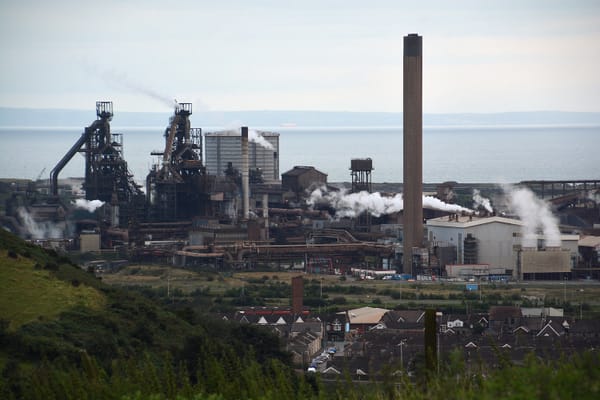Britain’s Labour party pledged to launch a green revolution when it came to power on July 5. Great British Energy, a state-owned enterprise set up to finance clean and renewable-energy sources like solar and wind power, is to be established as part of an ambitious plan to decarbonize the electricity grid by 2030. The party has made it clear they will not be granting any new licenses for the extraction of gas and oil in the North Sea. Yet while Prime Minister Keir Starmer is confident that Great British Energy will protect jobs in the energy sector for future generations, try telling that to South Wales’s steel manufacturers.
Once the envy of the world, Britain’s steel industry is now in terminal decline. The collapse of the Port Talbot steelworks in South Wales means Britain will be the only advanced nation without the ability to make high-quality “virgin” steel—new steel derived from burning coal and melting iron ore to extract the iron—due primarily to a series of misguided environmental policies.
For workers at sites like the Port Talbot steelworks, the real enemy has a name: Net Zero. For months, the Unite union has been planning to take industrial action to protest the looming threat posed by a shut-down of the plant’s operations in the name of efficiency and lower carbon emissions. If talks break down, it will be the first time in more than 40 years that steel workers in Britain have taken strike action.
